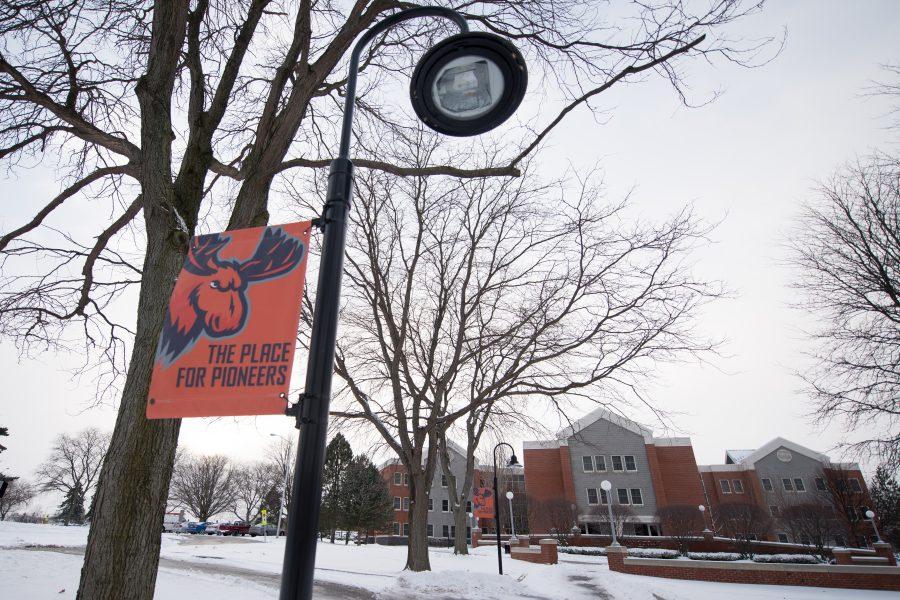Nicholas Souza, News/Online Editor
On the first day of classes, Utica College experienced a strange phenomenon that does not usually happen – cancelled classes.
Due to the inclement weather, all classes after 4 p.m. were cancelled, causing many classes that had just started to be cut short. The decision, which was made by the provost’s office, was deemed necessary due to the roads becoming increasingly dangerous to drive on and UC did not want students commuting to classes in the evening to have to make the trek to campus.
The cancellation or lack thereof during previous winters at UC has led many to wonder what the policy regarding inclement weather is and who makes that decision.
“The policy is that we want to close down if people are endangered by transporting to school,” Dr. John Johnsen, provost and vice president of academic affairs, said. “Obviously a lot of students are on campus but a lot aren’t, and so are the faculty so we obviously don’t want to put them in danger. How we determine [to cancel classes] is we look for information to see if there has been an appeal by public officials to stay off the roads. We send Campus Safety out onto the roads to see if the roads are actually passable.”
On the first day of classes, administrators received reports around 3 p.m., indicating that the weather and roads were becoming increasingly treacherous. The assessment of whether or not the weather is bad enough to cancel classes is a collaboration between many offices and officials on campus.
If the president of the college is on campus, the decision to cancel class ultimately falls on their shoulders but in the case of the cancellation on Jan. 15, Dr. Johnsen made the decision. In the event that the president and provost are not on campus, the decisions falls to Executive Vice President and Chief Advancement Officer Laura Casamento or Senior Executive Associate to the President and Vice President for Planning and Facilities Oversight Kim Lambert.
In the event of a more prolonged cancellation of classes, the administration will also consult to offices such as Residence Life and Sodexo.
As the UC community knows, it is very rare that the college cancels classes. Johnsen expressed that UC’s standards for what constitutes as bad weather is different than what a school in Georgia may consider bad weather. Due to Central New York’s severe weather most winter’s, UC’s standard is very high. Even though there is a high standard, some students feel that sometimes the college is irresponsible when it does not cancel classes.
“I think they are irresponsible when they don’t cancel classes because there are a high amount of commuters that are expected to drive from far distances in really bad weather,” Megan Postol, a senior public relations and journalism student who commutes nearly 30 minutes to class every day, said. “If they can’t make it to class, they are reprimanded by professors and suffer consequences because they are worrying about their safety.”
Dr. Johnsen expressed that students should determine whether the roads are safe enough to drive on because he realizes some commuters are from different areas of the state. However, he does not encourage faculty to take it upon themselves to cancel their classes due to the weather.
Featured Image: Photo by Kevin Montano.






































































































































